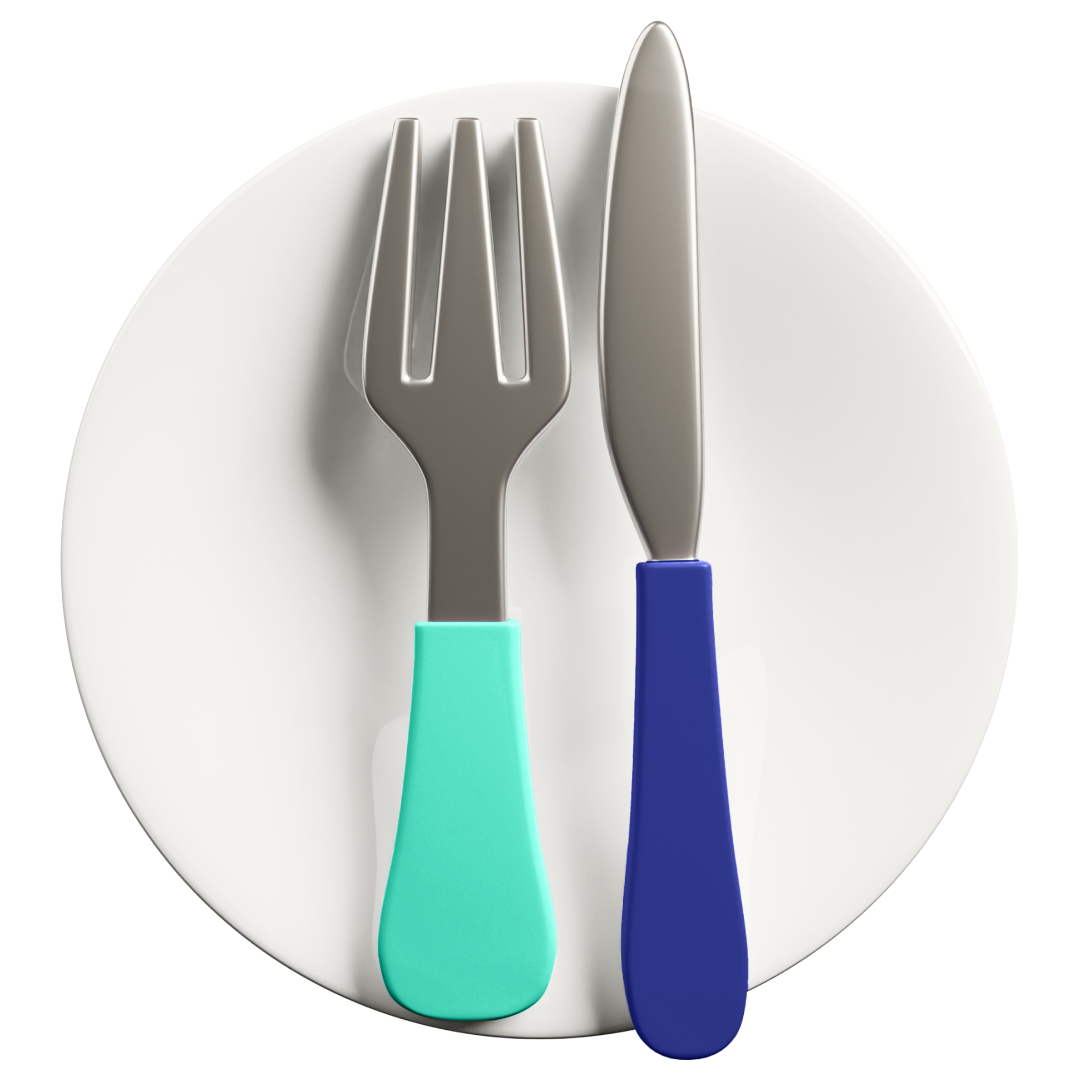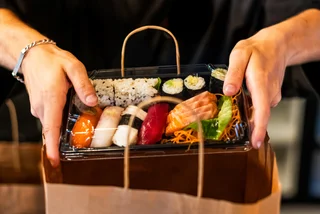Living in another country often means taking part in its culture, especially its food. For people with food allergies or for those on special diets, it’s not enough to eat what’s on the shelves. You need alternatives. Fortunately, they can be easily found in Prague.
Gluten Free Foods
If you’re unfortunate enough to suffer from celiac disease, you’ll be pleased to know you can find gluten-free products in most supermarkets, though you will find a much greater range in health food and specialty stores.
To help you make an informed choice, there are a few keywords and symbols to look out for. The easiest sign is the crossed grain symbol (an ear of wheat with a cross through it). This is widely-recognized symbol that food is gluten free and safe for people suffering from celiac disease.
Other keywords and phrases to look out for are ‘bezlepkový’, ‘bez lepku’ or ‘bezglutenový’, the latter which is Slovak. All these expressions mean the products are gluten free. Because some products are made in Germany, it may also help to know the German term, which is ‘glutenfrei’.
Not all products will be labeled as such. Terms for some of the more common gluten free ingredients are:
Corn flour – kukuřičná mouka
Corn starch – kukuříčný škrob
Potato flour – bramborová mouka
Potato starch – bramborový škrob
You will find a list of non-wheat flours and recommendations of brands here.
More importantly are the terms for wheat and other grains, which can make those with celiac disease ill. The English word is followed by both the noun and adjective forms in Czech:
Wheat – pšenice / pšeničný
Barley – ječmen / ječný
Rye – žito / žitný
Oats – oves / ovesný
There is some dispute over whether oats cause problems, but the word is included here for those who want to avoid them.
Even foods which would be assumed safe for consumption should be checked. One such warning to look out for is: MŮŽE OBSAHOVAT STOPY PŠENICE (CAN CONTAIN TRACES OF WHEAT).
More worrisome for celiac sufferers is that gluten can be found in other products, and it might not be labeled. Instant soups, sausages, chocolates, sweets and jams were all mentioned as foods which could trigger a reaction. Food producers don’t have to label them.
In Europe, one international brand is synonymous with gluten-free and that is Schär. They produce a wide range of goods from breads, crackers, pasta, cookies, cakes and breakfast cereals. Bezlepka a Bio, located in the building of Poliklinika Modřany, stock a wide range of Schär and other products. A customer in the store said they were the best products of their kind. Even her grandchildren liked them. The shop also has fresh gluten-free bread on Mondays, Wednesdays, and Fridays, though the amount and variety is smaller than the packaged breads. A word of warning, they also have bio bread there which contains gluten, so be sure to ask.
Besides having probably the largest range of gluten-free products in Prague, the staff at Bezlepka a Bio can also advise you. The manager said that a lot of people come from their doctors not knowing what they can and can’t eat. She said she was happy to help.
The one drawback of Bezlepka a Bio is that it is located in Prague 12. You can order online, but it takes about a week to deliver. So if you need something instantly, take the 3, 17 or 21 trams to the stop Poliklinika Modřany. The building is on the other side of the underpass. To find the shop, go through the main entrance of the clinic, turn left, and look for the name Bezlepka a Bio.
At least one local bakery, Penam, is responding to the demand for gluten-free breads. They have a line of gluten-free products. According to their website, the bread is available in many of the major supermarket chains.
Nor do celiac disease sufferers have to miss out on beer. One Czech brewery, Žatec, produces a gluten-free beer called Celia. The brewery wouldn’t confirm where it is available, but the beer is stocked at Pivní Rozmanitost from time to time and also Bezlepka a Bio. And if you can’t find Celia, Lammsbrau gluten free is available from Biomarket at Vinohradská 53 in Prague 2.
Lactose Intolerance
It is also possible to live lactose free in Prague. Look for the following terms: “bez laktózy” or “bezlaktózový”.
A number of types and brands of non-dairy milk are available.
English Czech Brands
Soy milk sojový nápoj Provamel, Naturgreen, Soja Food, ALPRO Soya, Zajíc (Zajíc is a powdered soy milk).
Rice milk rýžový nápoj Provamel, Naturgreen
Oat milk ovesný nápoj Bio Oatly
Almond milk nápoj z mandlí EcoMil
Most of these products, especially the soy milk, are widely available. You can find them in large supermarket chains, pharmacies and health food stores. The health food stores seem to be a bit cheaper.
The choice is a bit more limited regarding other non-dairy or lactose-free products. The most widely available soy yoghurt is the French brand Sojade. You can get both large and small tubs of this. Country Life stores (check link to see locations) appear to have the largest range, but it is available in some of the other health food stores.
Those with a sweet tooth have a couple of options. ALPRO Soya and Provamel make what they call sojový dezert, which is a soy-based pudding. Both varieties can be found in many of the health food stores. Ice cream lovers don’t have to miss out either. BioHome at Belgická 30 in Prague 2 stock soy ice cream SoYeah.
It is also possible to get lactose-free cheese and whip cream. BioMarket stock a lactose-free sheep’s milk cheese by Minus L, and BioTop, at Školská 34, Prague 1, stock a lactose-free cow milk cheese from Andechser Natur, but it’s quite pricy. I have not been able to find Cabot Cheese in any of the local health food stores.
Macrobiotic Diet
People on a macrobiotic diet are not necessarily allergic to certain foods. They may choose the lifestyle because it is healthier. Whatever the reason, the foods required can be found.
Whole grains can be obtained from health food stores mentioned. Millet (jáhly), buckwheat (pohanka), and bulghur (bulgur) are on the shelves. Again, Country Life may have the largest range. For some of the more specialty ingredients such as Azuki beans, miso, and sea weed (mořská řasa), you can try either a Japanese specialty store, or it would be worth visiting Obchůdek zdravé výživy at Sázavská 14. The owner follows the macrobiotic diet herself and stocks many of the ingredients needed.
She doesn’t speak English, though if you know what you need she’ll find it. However, if you are a new to the diet you might want to contact Zuzana Teršová at Macrobios. She is happy to advise people on the products, and her bistro is near Obchůdek zdravé výživy. For those who are busy or only want to try, Macrobiotic lunches are available from 11:30 until 15:00. She is also willing to arrange private macrobiotic cooking classes in English.
The alternatives are out there, and there is every indication from the owners of the various health food stores that interest in these foods is growing. Perhaps the major chains will stock more in the future.
What are your tips?
Related articles
- Farewell Fake Rum? A Short History of the Endangered Czech Spirit
- Cocktail Emporium with Prague-Themed Drinks Opens on Wenceslas Square
- Prague Named among Top 10 Vegan-Friendly Capitals In 2017
- Czech Republic Will Continue to Fight Inferior Food Quality
- Take a Look Inside Prague’s New Temple For Meat Lovers












 Reading time: 6 minutes
Reading time: 6 minutes 





















